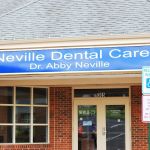Tooth Care Guidelines: Essential Tips for Maintaining Healthy Teeth
- 1. Introduction to Tooth Care
- 2. Daily Tooth Care Routine
- 3. Preventive Tooth Care: Protecting Your Teeth
- 4. Common Dental Issues and How to Prevent Them
- 5. Diet and Its Impact on Your Teeth
- 6. The Importance of Regular Dental Checkups
- 7. Real-Life Experiences: Effective Tooth Care
1. Introduction to Tooth Care
Tooth care is a critical component of maintaining overall health, but it often goes overlooked. Many people focus on brushing their teeth, but good oral hygiene encompasses more than just brushing. It involves regular maintenance through brushing, flossing, and regular dental visits. Moreover, what you eat, how often you visit your dentist, and how well you care for your teeth at home all play a crucial role in the health of your teeth. In this article, we’ll discuss essential tooth care guidelines that can help prevent dental problems and ensure a healthy smile for years to come.
2. Daily Tooth Care Routine
Establishing a daily tooth care routine is the first step in ensuring long-term oral health. Brushing your teeth twice a day is essential, but it’s important to do it properly. Use a fluoride toothpaste and a soft-bristled toothbrush. Brushing for at least two minutes ensures you remove plaque, a sticky film of bacteria that can cause tooth decay and gum disease.
In addition to brushing, flossing daily is vital for removing food particles and plaque from between the teeth and under the gumline, where a toothbrush may not reach. Using mouthwash with fluoride can further protect your teeth from bacteria, and it provides a refreshing finish to your oral care routine.
3. Preventive Tooth Care: Protecting Your Teeth
Preventing tooth problems before they arise is key to long-term dental health. One of the most important preventive measures is to avoid sugary foods and drinks that can lead to tooth decay. Instead, focus on a balanced diet that supports oral health. Additionally, using toothpaste that contains fluoride is one of the most effective ways to protect against cavities and strengthen tooth enamel.
Another essential preventive step is to avoid smoking or using tobacco products, as they can lead to gum disease and oral cancer. If you have a habit of grinding your teeth, especially at night, consider using a mouthguard to prevent wear on your teeth.
4. Common Dental Issues and How to Prevent Them
There are several common dental issues that people encounter, including cavities, gum disease, tooth sensitivity, and bad breath. Here are a few ways to prevent these issues:
- Cavities: Brushing with fluoride toothpaste, reducing sugar intake, and flossing can help prevent cavities.
- Gum Disease: Regular brushing and flossing, along with regular dental checkups, can help keep your gums healthy.
- Tooth Sensitivity: Using toothpaste designed for sensitive teeth and avoiding acidic foods can help reduce sensitivity.
- Bad Breath: Regular brushing, flossing, and using mouthwash can eliminate the bacteria that cause bad breath.
Addressing these issues early through prevention can help you avoid more severe problems, including tooth loss and the need for costly dental treatments.
5. Diet and Its Impact on Your Teeth
Your diet has a direct impact on the health of your teeth. Sugary and acidic foods can weaken enamel and contribute to cavities. To protect your teeth, aim for a balanced diet that includes plenty of fruits, vegetables, and dairy products. These foods help strengthen your teeth and gums, providing essential nutrients like calcium and vitamin D.
Crunchy foods such as carrots and apples can naturally scrub your teeth while you chew, helping to remove plaque and prevent cavities. Additionally, drinking water throughout the day helps wash away food particles and bacteria, keeping your mouth fresh.
6. The Importance of Regular Dental Checkups
While maintaining good oral hygiene at home is essential, regular dental checkups are crucial for identifying potential problems early on. Your dentist can spot issues like cavities, gum disease, and oral cancer that might not be visible to the naked eye. Regular checkups also include professional cleanings, which remove tartar buildup that can’t be eliminated with at-home care alone.
It’s generally recommended to visit your dentist at least twice a year for checkups and cleanings. If you’re prone to certain dental problems, your dentist may suggest more frequent visits.
7. Real-Life Experiences: Effective Tooth Care
Sarah, a mother of two, shared how following a strict tooth care routine helped her children maintain healthy smiles. “My kids used to hate brushing their teeth, but we made it a fun family activity. Now, they enjoy brushing twice a day and know the importance of taking care of their teeth,” she said.
Similarly, Tom, a busy professional, learned the hard way about the importance of regular dental checkups. “I used to skip dental appointments until I had a toothache that turned into a bigger problem. Now, I make sure to visit my dentist regularly and follow a proper oral care routine,” he explained.
These real-life stories demonstrate how consistent tooth care and regular checkups can prevent painful dental problems and ensure a lifetime of healthy teeth.







 Olsen Orthodontics5.0 (94 review)
Olsen Orthodontics5.0 (94 review) Anoka Ramsey Dental5.0 (185 review)
Anoka Ramsey Dental5.0 (185 review) Kaiser & Rosen Dental Associates4.0 (107 review)
Kaiser & Rosen Dental Associates4.0 (107 review) Neville Dental Care5.0 (46 review)
Neville Dental Care5.0 (46 review) Smile L.A. Downtown Modern Dentistry4.0 (484 review)
Smile L.A. Downtown Modern Dentistry4.0 (484 review) Growing Smiles of Englewood5.0 (213 review)
Growing Smiles of Englewood5.0 (213 review) The Importance of Oral Health Education During Pregnancy for a Healthy Pregnancy
The Importance of Oral Health Education During Pregnancy for a Healthy Pregnancy Best Tips for Brushing Your Teeth Properly for Healthy Gums: Essential Techniques for Oral Health
Best Tips for Brushing Your Teeth Properly for Healthy Gums: Essential Techniques for Oral Health Why Skipping Dental Checkups Can Lead to Bigger Oral Health Problems
Why Skipping Dental Checkups Can Lead to Bigger Oral Health Problems Advantages of Porcelain Dental Restorations
Advantages of Porcelain Dental Restorations How Can Diabetes Cause Tooth and Gum Problems? Preventing and Managing Oral Health Issues
How Can Diabetes Cause Tooth and Gum Problems? Preventing and Managing Oral Health Issues Healthy Habits for Promoting Good Oral Health and Hygiene: Tips for a Healthy Smile
Healthy Habits for Promoting Good Oral Health and Hygiene: Tips for a Healthy Smile